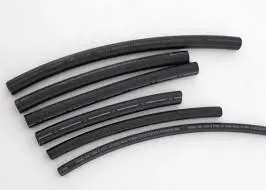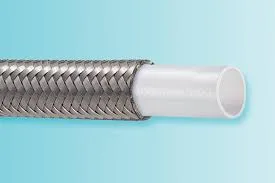jan . 09, 2025 12:01 Back to list
metal hose
Metal hoses are indispensable in various industries, known for their flexibility, durability, and ability to withstand extreme conditions. These attributes make them a vital component in sectors ranging from petrochemicals to aerospace. This article dives into the essential aspects of metal hoses, offering insights drawn from extensive industry experience, and emphasizes the importance of selecting the right type for specific applications.
Metal hoses also play a crucial role in minimizing vibrations. By isolating machinery-induced vibrations, they protect connected equipment from stress and potential damage, thereby enhancing the overall efficiency of operations. This ability to manage vibration transfer not only safeguards equipment but also improves workplace safety by reducing the likelihood of accidents caused by machinery failures. Advanced applications may necessitate specialized metal hoses, such as those with PTFE lining for added chemical resistance or reinforced variants for additional strength. The selection should always be guided by thorough assessments of specific operational requirements, often best advised by industry experts who understand the nuances of various industrial processes. Certifications and compliances enhance the trustworthiness of metal hoses. Products adhering to international standards, such as ISO 10380 for flexible metal hose assemblies, reassure users of their quality and reliability. Furthermore, choosing products from manufacturers with a strong track record and excellent customer service further ensures dependable performance over time. As we navigate complex industrial landscapes, the expertise embedded in selecting and maintaining metal hoses cannot be overstated. By investing in quality hoses and adhering to best practice guidelines, industries can achieve greater safety, efficiency, and longevity in their operations. Remember, the cornerstone of utilizing metal hoses effectively lies in leveraging their unique properties and aligning them with the specific demands of your industrial processes.


Metal hoses also play a crucial role in minimizing vibrations. By isolating machinery-induced vibrations, they protect connected equipment from stress and potential damage, thereby enhancing the overall efficiency of operations. This ability to manage vibration transfer not only safeguards equipment but also improves workplace safety by reducing the likelihood of accidents caused by machinery failures. Advanced applications may necessitate specialized metal hoses, such as those with PTFE lining for added chemical resistance or reinforced variants for additional strength. The selection should always be guided by thorough assessments of specific operational requirements, often best advised by industry experts who understand the nuances of various industrial processes. Certifications and compliances enhance the trustworthiness of metal hoses. Products adhering to international standards, such as ISO 10380 for flexible metal hose assemblies, reassure users of their quality and reliability. Furthermore, choosing products from manufacturers with a strong track record and excellent customer service further ensures dependable performance over time. As we navigate complex industrial landscapes, the expertise embedded in selecting and maintaining metal hoses cannot be overstated. By investing in quality hoses and adhering to best practice guidelines, industries can achieve greater safety, efficiency, and longevity in their operations. Remember, the cornerstone of utilizing metal hoses effectively lies in leveraging their unique properties and aligning them with the specific demands of your industrial processes.
Next:
Latest news
-
High-Quality 1 2 Rubber Hose - Durable, Flexible Hydraulic Solutions
NewsJul.07,2025
-
Discover SAE Hydraulic Hose Types - High Quality & Durable Hoses from Leading Factory Supplier
NewsJul.06,2025
-
High Pressure Wire Hydraulic Rubber Hose Supplier Durable & Reliable 1SN Hose Solutions
NewsJul.06,2025
-
High-Quality Rubber Air Hose 3/8" – Durable, Flexible & Leak-Proof for Industrial Use
NewsJul.05,2025
-
High Quality Rubber Air Hose 3/8 - Durable 3/8 Rubber Air Hose with Air Brake Hose Fittings
NewsJul.05,2025
-
OEM ISO3862 Hydraulic Rubber Hose R15 Supplier - Durable & High Pressure Solutions
NewsJul.04,2025
